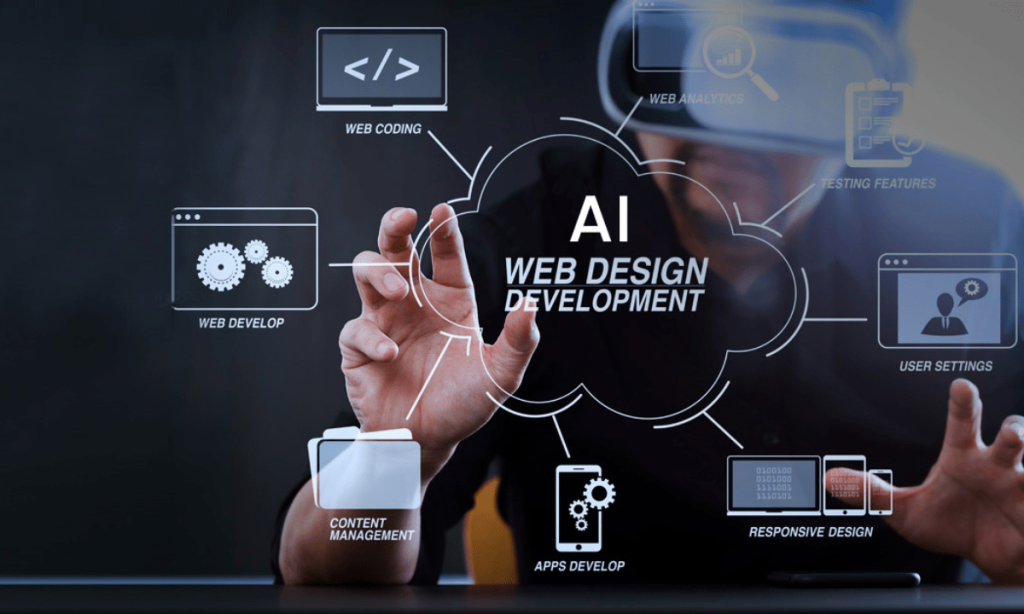
Introduction
The web development of the future is rapidly evolving. Old-school coding techniques are no longer the only means for businesses and developers.
With low-code development platforms and artificial intelligence-driven web development, developing websites and applications has become quicker, cheaper, and easier.These technologies are transforming the way companies create digital experiences and how developers work.
Why Low-Code Development Platforms Are Rising ?
Previously, developing a website or mobile app took months of work and a team of experienced programmers. Now, low-code application platforms enable companies to build functional applications with drag-and-drop interfaces and pre-configured components. This makes it less complicated and faster to deliver.
For small businesses and startups, this is a game-changer. Rather than spending large sums of money on coding talent, they can utilize low-code developer tools to get products up quickly and evolve them along with their changing needs.
The Role of AI-Powered Web Development
The other trend affecting the future of web development is artificial intelligence. AI in web development improves everything from design to testing. For instance, machine learning algorithms can review user behavior and suggest improvements to design, while automation tools can find and correct bugs in real time.
AI-assisted web development doesn’t just expedite coding—it makes it intelligent. Smart systems can create code snippets, generate layout recommendations, and even improve performance. This allows developers to concentrate on innovation rather than grunt work.
Low-Code vs Traditional Development
Low-code vs traditional development is an issue of growing interest. Traditional coding provides complete flexibility and control, but it is time-consuming and requires considerable resources.
Conversely, low-code solutions provide quickness and ease of access. Not only do they enable professional developers, but also non-technical people, referred to as “citizen developers,” to contribute to online projects. Even though low-code will not eliminate classical coding, it supplements it by addressing the less complex applications and leaving room for developers to specialize in sophisticated functions.
Web Development Automation and Efficiency
Another factor contributing to adoption is the increasing automation of web development. Automated processes are now used to perform testing, deployment, and maintenance, minimizing errors and saving time. Coupled with insights powered by AI, automation guarantees that websites are running efficiently and securely with minimal manual intervention.
This automation trend also favors end users. Quicker updates, smooth integrations, and lowered downtime make for improved digital experiences. Those businesses that adopt automation can respond more quickly to market dynamics and user needs.
AI Website Builders and Accessibility
The rise in popularity of AI web page builders demonstrates how web development is easier than ever. These web builders can create layouts automatically, recommend content structure, and optimize websites for speed and SEO. For small companies or those lacking technical expertise, AI-powered builders enable professional website creation without the need to employ large teams.
But these tools are not only for beginners. Developers can leverage them as a starting point and build on and scale projects further. This hybrid approach integrates the advantages of automation and human creativity.
Looking Ahead: The Future of Web Development
The future of web development will be marked by cooperation between human skills and intelligent technology. Low-code development platforms will expand as enterprises require quicker solutions. At the same time, AI for web development will turn digital products into intelligent, adaptive, and more convenient products.
Instead of replacing developers, such tools will enable them. Experts will work less on routine coding and more on strategy, creativity, and innovation. Companies adopting AI-driven web development and web development automation will gain a competitive advantage by providing contemporary, scalable solutions.
Conclusion
The rise of low-code vs the classical development arguments, the effectiveness of low-code platforms for programmers, and the emergence of AI-powered website builders all indicate a single unambiguous trend: web development gets more innovative and more accessible.
The future of web development lies in merging automation with human ingenuity. Companies that embrace low-code development platforms and invest in AI-driven web development not only save time and money but also provide superior digital experiences. By adopting these advances now, companies position themselves for a more intelligent and efficient future.
